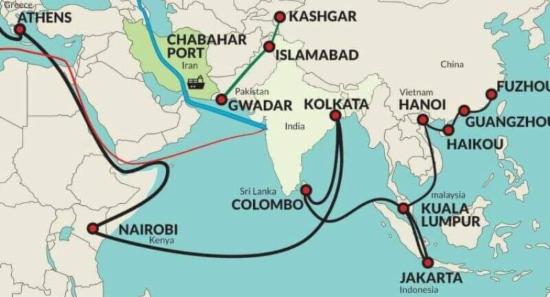.webp)

Semiconductor chips will be the new source of geopolitical power in the next 50 years, predicts CEO of Intel
Colombo (News 1st) -
Semiconductor chips will be the new source of geopolitical power in the next 50 years, the CEO of Intel Corp, Patrick Gelsinger has predicted.
Speaking to the media at Davos, Switzerland, where he is attending the World Economic Forum’s annual meeting which is currently ongoing, Gelsinger declared: “Where the oil reserves are, defined geopolitics for the last five decades. Where the technology supply chains and semiconductors are located, will define geopolitics for the next five. It’s that important”.
“What aspect of your life is not becoming more dependent on technology? Everything is becoming more digital and everything digital runs on semiconductors. So this is critical to every aspect of human existence. Every aspect of your life will be digitally driven – health, auto, cloud computing, artificial intelligence, personal computers”, said Gelsinger.
Global supply chains for the semiconductor industry underwent a crisis during the economic slump caused by COVID from 2020-22, exacerbating the economic challenge, especially for companies that depended on semiconductors in their products.
Intel is making massive investments in new semiconductor factories in the U.S. state of Ohio, in addition to those it already has in Arizona, New Mexico, and Oregon. Globally it has factories in Ireland and Israel and has one planned in Germany.
“We see semiconductor requirements doubling this decade and I need to build the capacity for that. These investments are huge and we aim to be competitive in the world. They are for the second half of this decade. We’re investing for the long-term”, said Gelsinger.
He noted that the COVID pandemic had demonstrated the importance of semiconductors, where Asian countries hard hit by COVID were unable to maintain a continuous supply.
“Only 20% of the semiconductor requirement of U.S. companies is in the U.S, with 80% in Asia. We need resilient supply chains and need to have the capacity to build and supply for our requirements in the future”, he noted.
Other Articles
Featured News





.png )







-755072_550x300.jpg)
-754036-755060_550x300.jpg)



.gif)








.webp)






